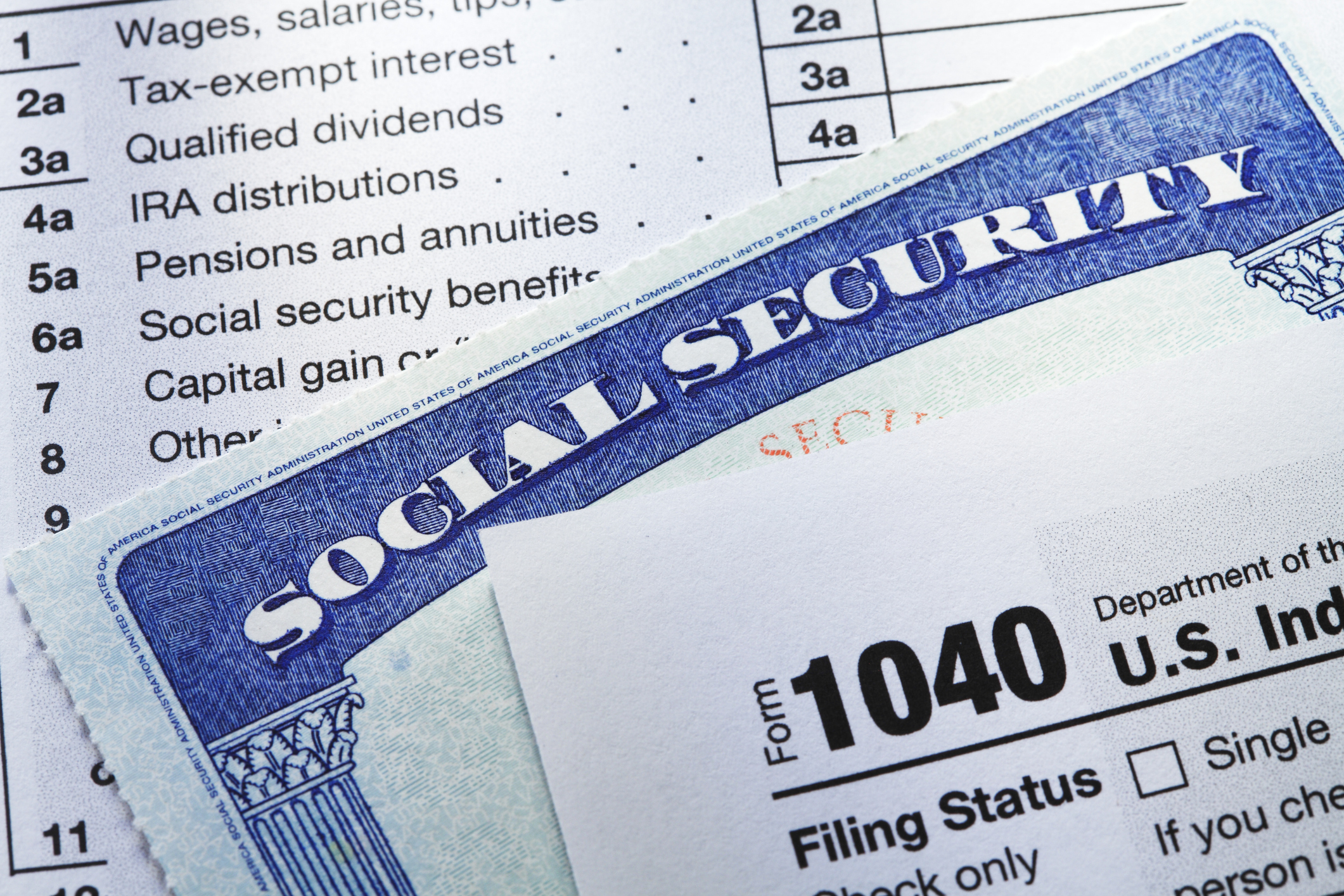Eight Things No One Tells You About Retirement
As you advance toward retirement, it's a good idea to start sharpening the focus of your retirement vision.

Donna LeValley

Profit and prosper with the best of Kiplinger's advice on investing, taxes, retirement, personal finance and much more. Delivered daily. Enter your email in the box and click Sign Me Up.
You are now subscribed
Your newsletter sign-up was successful
Want to add more newsletters?

Delivered daily
Kiplinger Today
Profit and prosper with the best of Kiplinger's advice on investing, taxes, retirement, personal finance and much more delivered daily. Smart money moves start here.

Sent five days a week
Kiplinger A Step Ahead
Get practical help to make better financial decisions in your everyday life, from spending to savings on top deals.

Delivered daily
Kiplinger Closing Bell
Get today's biggest financial and investing headlines delivered to your inbox every day the U.S. stock market is open.

Sent twice a week
Kiplinger Adviser Intel
Financial pros across the country share best practices and fresh tactics to preserve and grow your wealth.

Delivered weekly
Kiplinger Tax Tips
Trim your federal and state tax bills with practical tax-planning and tax-cutting strategies.

Sent twice a week
Kiplinger Retirement Tips
Your twice-a-week guide to planning and enjoying a financially secure and richly rewarding retirement

Sent bimonthly.
Kiplinger Adviser Angle
Insights for advisers, wealth managers and other financial professionals.

Sent twice a week
Kiplinger Investing Weekly
Your twice-a-week roundup of promising stocks, funds, companies and industries you should consider, ones you should avoid, and why.

Sent weekly for six weeks
Kiplinger Invest for Retirement
Your step-by-step six-part series on how to invest for retirement, from devising a successful strategy to exactly which investments to choose.
As you advance toward retirement, it's a good idea to start sharpening the focus of your retirement vision. You need to figure out how you'll spend your time, what your retirement budget will look like and where your money will come from in retirement.
But as you build your retirement plan, you may discover a few unexpected twists along the way. The sooner you confront them, the better you can prepare. Here are eight surprising things you may not know about retirement.

1. Social Security benefits and retirement savings are taxable
Once you start receiving Social Security checks, it may come as a surprise at tax time that Uncle Sam wants some of that money back. As much as 85% of Social Security benefits are taxable, depending on your income. In 9 states, you'll owe state income tax on your Social Security benefits, too.
Withdrawals of pretax money that you contributed to a 401(k) or a traditional IRA throughout your working years also will trigger a federal and possibly a state income tax bill. The one bright spot: Withdrawals from a Roth 401(k) or Roth IRA will be tax-free in retirement. (After-tax 401(k) contributions and nondeductible IRA contributions can be taken out tax-free, too).
When devising your retirement income plan, take taxes into account. By having taxable accounts, tax-deferred accounts and tax-free accounts, you'll have some flexibility in managing and possibly reducing your annual tax bite in retirement.

2. Retirees get a lot of tax breaks
Although retirement-account withdrawals and Social Security benefits are subject to tax, there is some good news for retirees when it comes to taxes: A lot of tax breaks are available for retirees. Taxpayers 65 and older, for instance, qualify for a bigger standard deduction on their federal tax returns.
Many states offer tax breaks on all or part of your retirement income. Mississippi, for instance, doesn't tax any retirement income. Tennessee and New Hampshire don't tax retirement income, dividends or interest. Some states offer special breaks for retirees on sales taxes and property taxes. Check out the tax breaks your state offers by using Kiplinger's Retiree Tax Map.

3. Medicare does not cover all of your health costs
When you hit age 65, it's time to enroll in Medicare. But just as with the health insurance you've had throughout your working years, you'll have to pay premiums for Medicare coverage and co-pays on covered services. And some services — such as long-term care — aren't covered at all.
The average 65-year-old will pay $165,000 in out-of-pocket costs for health care during retirement, according to Fidelity Investments. And that does not include those potential long-term-care costs.
Buying a Medigap supplemental insurance policy can help cover some of your out-of-pocket costs. Or instead of traditional Medicare and a medigap policy, you can enroll in Medicare Advantage, which provides health coverage through a private insurer.
Also consider buying a long-term-care insurance policy, which can help pay for home health aides or care in an assisted-living facility or nursing home.

4. Senior discounts aren't always a good deal
You know you've made it into your golden years when you have earned the right to a senior discount. Usually these discounts are offered to folks 60 or older, though some (such as AARP member discounts) may be available starting at age 50.
But buyer beware: Sometimes other discounts can save older consumers more money. Comparison shop before accepting a discounted senior rate. For instance, if you're booking a stay at a hotel, find out if the hotel offers a senior rate. Then double-check with a discount travel Web site, such as Hotels.com, to see if you can score a better deal on the price. Also determine whether other discounts, such as an AARP or AAA member discount, might beat the hotel's own senior rate.

5. Turning half a year older matters
Many youngsters like to cite their age in half years, such as "five and a half" or "seven and a half." In retirement, you'll resurrect that thinking because two key milestones rely on half years. And if you aren't mindful of them, you could end up getting socked by Uncle Sam.
Once you hit age 59-1/2, you are no longer subject to the 10% early-withdrawal penalty if you take money out of your IRA or 401(k). Withdrawals of your earnings from a Roth IRA will no longer be subject to that penalty, either (assuming you've owned a Roth IRA for at least five years).

6. You must withdraw from your nest egg
Once you turn age 73, Uncle Sam mandates that you take required minimum distributions from traditional IRAs and 401(k)s (except from the 401(k) of your current employer if you are still working and own less than 5% of the company). If you haven't taken your first RMD by April 1 of the year following the year you turn 73, Uncle Sam will sock you with a hefty penalty — 25% of the shortfall. For instance, if your RMD was supposed to be $10,000, your penalty will be $2,500.
But just because you have to take money out of the tax shelter doesn't mean you have to spend it. If you don't need the money to live on, you can instead reinvest the money in a taxable account.

7. Your nest egg may need to stretch for decades
Workers saving for retirement are often focused on their retirement date. But that's only the beginning of potentially decades that your nest egg is going to have to provide your income. If you retire at 65 and die at 95, that's 30 years of annual income you'll need — which could be almost as long as your working career. Life expectancies are increasing, and the odds are good that at least one spouse, if not both, is going to live into his or her nineties.
When creating your retirement income plan, there are a number of ways to protect against "longevity risk" — that is, the risk of living longer than your money lasts. Consider keeping stocks in your nest egg, which can provide growth over the long term and help protect you from the risk that inflation will eat up your money.
A smart move to maximize lifetime Social Security income is having the higher earner delay his or her benefit until age 70, which will boost that benefit by 32% a month for those whose full retirement age is 66 or 67. That boosted benefit will last the lifetime of the surviving spouse; it can't be outlived, and it comes with an annual inflation adjustment, too.
Another option to make sure you have money to live on in your old age: Consider a longevity annuity. This annuity requires a smaller investment up front in exchange for bigger guaranteed annual payouts that typically start around age 85. New government rules allow you to invest in one through retirement accounts.

8. You can keep saving for retirement
If you are still working later in life, even part-time, you can still save in tax-advantaged retirement accounts. If your employer offers a 401(k), you can contribute to that plan; consider socking away at least enough to get any company match.
After you hit age 73, you can contribute to a traditional and Roth IRA, if you still have earned income. However, at 73 you must take RMDs from a traditional IRA, making it a less than optimal choice. If you are self-employed, you have a few other options, such as setting up a solo 401(k).
Profit and prosper with the best of Kiplinger's advice on investing, taxes, retirement, personal finance and much more. Delivered daily. Enter your email in the box and click Sign Me Up.

- Donna LeValleyRetirement Writer
-
 Quiz: Do You Know How to Avoid the "Medigap Trap?"
Quiz: Do You Know How to Avoid the "Medigap Trap?"Quiz Test your basic knowledge of the "Medigap Trap" in our quick quiz.
-
 5 Top Tax-Efficient Mutual Funds for Smarter Investing
5 Top Tax-Efficient Mutual Funds for Smarter InvestingMutual funds are many things, but "tax-friendly" usually isn't one of them. These are the exceptions.
-
 AI Sparks Existential Crisis for Software Stocks
AI Sparks Existential Crisis for Software StocksThe Kiplinger Letter Fears that SaaS subscription software could be rendered obsolete by artificial intelligence make investors jittery.
-
 States That Tax Social Security Benefits in 2026
States That Tax Social Security Benefits in 2026Retirement Tax Not all retirees who live in states that tax Social Security benefits have to pay state income taxes. Will your benefits be taxed?
-
 What to Do With Your Tax Refund: 6 Ways to Bring Growth
What to Do With Your Tax Refund: 6 Ways to Bring GrowthUse your 2024 tax refund to boost short-term or long-term financial goals by putting it in one of these six places.
-
 What Does Medicare Not Cover? Eight Things You Should Know
What Does Medicare Not Cover? Eight Things You Should KnowMedicare Part A and Part B leave gaps in your healthcare coverage. But Medicare Advantage has problems, too.
-
 12 Great Places to Retire in the Midwest
12 Great Places to Retire in the MidwestPlaces to live Here are our retirement picks in the 12 midwestern states.
-
 15 Cheapest Small Towns to Live In
15 Cheapest Small Towns to Live InThe cheapest small towns might not be for everyone, but their charms can make them the best places to live for plenty of folks.
-
 15 Reasons You'll Regret an RV in Retirement
15 Reasons You'll Regret an RV in RetirementMaking Your Money Last Here's why you might regret an RV in retirement. RV-savvy retirees talk about the downsides of spending retirement in a motorhome, travel trailer, fifth wheel, or other recreational vehicle.
-
 The 24 Cheapest Places To Retire in the US
The 24 Cheapest Places To Retire in the USWhen you're trying to balance a fixed income with an enjoyable retirement, the cost of living is a crucial factor to consider. Is your city the best?
-
 Medicare or Medicare Advantage: Which Is Right for You?
Medicare or Medicare Advantage: Which Is Right for You?From overall costs to availability of care, here's what to know about the differences between traditional Medicare and Medicare Advantage plans.
